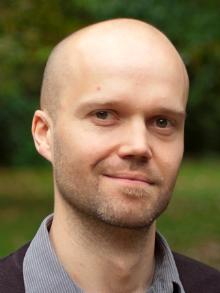Meet the Trainer – Andrew Filby

Meet Dr. Andrew Filby, Director of the Flow Cytometry Core Facility at Newcastle University, which supports cutting-edge research through the provision of a comprehensive cytomics resource to both internal and external research groups, operating at the forefront of cytometric applications and method-focused research. Andrew Filby is one of the organisers of the EMBO Practical Course: The Fundamentals of High-End Cell Sorting (11 – 15 November 2019).
What is the greatest benefit of the course for the scientific community?
The ability to physically separate (sort) cells of a particular type or subtype is fundamental in so many biological questions. Teaching and empowering researchers how to do this well is very important.
What could the techniques in this course be used for in the bigger picture?
Cell sorting can be used for so many different reasons, ranging from basic discovery research right through to clinical trials and cell therapies.
Are the methods used in this course unusual or new?
Cell sorting has been around since the 1960s and the principles remain quite stable. However, in this course we teach students the practical as well as the theoretical aspects. The course is run by experts in the field and in a “real world” environment where attendees will be trained in two functioning flow cytometry/cell sorting core facilities.
In comparison to other training environments, what do you enjoy most about teaching at EMBL?
Everything about EMBL is set up for delivering excellent training in biological sciences and in particular the practical, hands-on elements. The training labs are amazing spaces and looked after very well. The canteen is also a highlight!
What is your number one tip related to the course?
Roll your sleeves up and get involved. Ask questions and interact with your trainers as much as possible.
What is your research focus, in 15 words or less?
I want to measure everything about every cell in the body!
What challenges is your research field facing?
The data we generate now is very complex. We have thousands of measurements on millions of cells, sometimes with image and spatial information too. The informatics skills and solutions needed can be immense.
What, in your opinion, is the most crucial scientific discovery of the past 100 years?
The invention of the cell sorter!
If you were a superhero what power would you have?
I would like to shrink myself so that I could travel around the human body and see the cells and processes for myself.